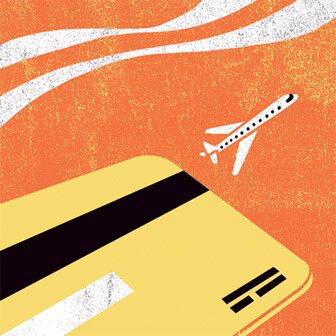After spending a month in Europe, I learned a little bit about how to travel safely and on a budget. I traveled with a study abroad program organized by the University of Florid’s College of Journalism, but I also spent my unstructured time backpacking and staying in hostels and bed & breakfasts. Here are some technical tips and tricks for my fellow and future travelers.
1. Save money on flights by booking in advance and doing research.
There are certain websites that will genuinely give you the cheapest prices. If you’re a student, make an account on studentuniverse.com. If you’re flying into Europe, check out Norwegian airlines. It only cost around $400 (including a checked bag) to fly into Copenhagen, Denmark from Fort Lauderdale. Once you’re in, you’re in. You can find a cheaper train or flight to move around the European Union (which does exclude some countries, so do that research, as well).
If you’re flying between countries in Europe, Ryanair is the cheapest airline, but be aware that although you will get high, you will not get high quality. Watch your back when dealing with Ryanair; flights are cheap because they tack on extra fees whenever possible (like a hefty 70 euro for the re-print of a lost boarding pass). Also, if you’re just browsing flights, use skyscanner.com. Skyscanner checks all the popular discount websites like Expedia all in one fell swoop. Now that’s better.
Also, if you’re just browsing flights, use skyscanner.com. Skyscanner checks all the popular discount websites, like Expedia, all in one fell swoop. Now that’s better.
2. Order a travel credit card, and be wise when withdrawing that paper.
When traveling abroad, you have to be aware of extra fees tacked onto your purchases. When you take money out of an ATM, your bank will charge you a fee of about 5 percent. It’s a good idea to take out a lump sum and split it up between your suitcase and daypacks just in case you’re pick pocketed. When using cards many places (like restaurants, for instance) will also charge a percentage fee.
Not all American debit and credit cards are accepted. This can put you in a serious bind if you don’t have cash. American credit cards will work as long as they have a silver travel chip. These cards aren’t charged the percentage fees, so you’ll only have to focus on the exchange rate when calculating the actual amount of your purchase.
I used my Visa Travel Rewards card for almost everything, and my rewards have amounted to $30 off my next flight. Often I would pay the checks of the entire group and they would give me the cash. I racked up rewards points and avoided those pesky ATM fees. Although the travel card is a necessity, definitely bring a debit card so that you’re able to take out cash for things like authentic street food and handmade goods from markets.
3. Phone data.
You MUST get an international plan or your phone bill will be higher than Afroman. Each phone company offers different international plans. AT&T offers a nice one that includes text messages, phone calls and data, but to be eligible you must be traveling for three months.
Instead of purchasing texts and calls, you can download the apps Viber and WhatsApp, which use Wi-Fi and cellular data, which you can turn on and off, to send SMS.
You will need to purchase a data plan in case of emergencies so you are able to get in contact with your travel buddies or your parents. AT&T offers a plan of $30 for 120MB (I ended up using almost double that amount in one moth, which wasn’t too bad). Verizon offers a similar plan of $25 for 100MB. You do not want to be caught in a foreign land without a way to contact others cheaply!
4. Apps are your friend.
A couple of free apps are really helpful when traveling abroad. Viber and Whatsapp are the two major communication apps, as I just mentioned, but trust me, there’s more. Kurrency is an easy, math-free way to figure out the exchange rate for each item you purchase. Accommodation apps like Airbnb and Hostelworld are great when you’re feeling spontaneous and haven’t planned out your entire trip. And for events and nightlife, Timeout knows the deal in most big cities. Duolingo can help you learn a new language quickly, and if that doesn’t pan out, Google Translate can help you try to understand it. Lonely Planet has a couple of apps that offer preview versions, and they offer popular guides for almost all destinations. Their Fast Talk App is good for basic language phrases, but you need to purchase the extended version if you want them all.
 5. Pack light.
5. Pack light.
And by light I mean imagine that your suitcase is an extension of yourself. Kind of like an extra limb or a cankle that needs a visit to the stairmaster.
Don’t be weighed down by non-necessities! When traveling abroad, do not expect that there will always be an elevator. Could you drag that 50-pound behemoth up five flights of stairs? If the answer is no, and it should be, remove all the stuff you know you don’t really need.
Bring basic colors and things that can be layered. Definitely include a few of your favorite signature pieces, but when it comes down to it, you will end up wearing the same thing more than once. Which brings me to my next point…
6. Do laundry.
There are laundromats in most other countries (it does depend on where you’re going), and trust me: It will make your time as a pack mule much easier.
Bring a compact, foldable hamper. I would’ve been a lot happier if I did. I looked a little silly carrying four shopping bags stuffed to the brim with dirty clothes.
However, laundromats can be a little pricey in some countries. If you’re not traveling with big bucks or your program doesn’t include cheap laundry, learn how to wing it. If worse comes to worst, you could always wash then hang dry. Or you could use a little detergent in the sink and skip the wash altogether. It can be a hard knock life outside your comfort zone, traveling isn’t always easy or glamorous, but it’s always a good learning experience.
7. Buy instead of bring.
Don’t be so attached to your things. This experience you are about to begin is full of internalization and revelation. All you really need is you. Everything else you can find, or buy or barter. You have to remember this trip is transformative for you, not your outfits, or your pictures or your purchases. Bring things that will help you feel comfortable in own skin in a foreign place, but don’t overdo it. You won’t need it anyway. Less really is more.
8. Be prepared for some slightly awkward misunderstandings.
If you’re abroad in a place where they don’t speak English, smiling is pure gold. And so is miming. You would have never before considered it to be such a wonderful way to communicate, but it sure does come in handy.
There are a lot of little things that you won’t be warned about when researching your travels, and when the awkwardness happens, just let it roll off you. It may be a little embarrassing when the grocer in Denmark doesn’t start to bag your food, as you stand there confused as to why the whole line is giving you “the look.” But once you realize that you’re supposed to bring bags or you must buy them, just go ahead and purchase a few, bag your food and get a move on to your next adventure.
9. Remember that you’re representing your country. Let’s try to keep the dunce hat off our proverbial head.
People are going to tell you what they’ve heard about America, and they’re going to ask you some… interesting questions. For example, “How often do you see people riding on electric scooters?” or, “How big is your largest soda?” Smile, be polite and tell the truth. Most people from other countries want to learn about American culture, so go the extra mile and explain it to them. Maybe after telling them that a large soda at McDonalds is in fact 32 fluid ounces, you can also let them know that water fountains are almost everywhere in America, an uncommon thing in Europe. Oh, and you can let them know that we totally outlawed the supersize.
10. Take some time to just be.
Although climbing the hundreds of steps to the Eiffel Tower or visiting the Louvre are going to be worthwhile memories, there is something important that’s easily forgotten while traveling. Being in constant go-mode with an itinerary of all that needs to be seen and accomplished can make you lose sight of the core of your experience. I’m taking about those internal moments; the ones in which you take a second to realize where you are and begin to feel your own personal growth.
Take some time alone and do whatever it is that you love to do. Read, write, paint, listen to music, eat. Take your chosen activity to a place where you truly feel connected to the country. Sit by a river with a pastry and novel, have a drink at a café and people-watch, find a park where you can really revel in the fact that you are abroad. Notice your surroundings and climb inside the essence of your experience. Take time to be grateful for where you are and really absorb, understand and fully occupy your moment. This you will not regret, because instead of running to catch the metro or the next show or tour, you’re focusing on nothing but yourself.
Make your moment whatever you want it to be, but don’t miss out on it. In life, the best things are little things.
Featured photo courtesy of: wordpress











